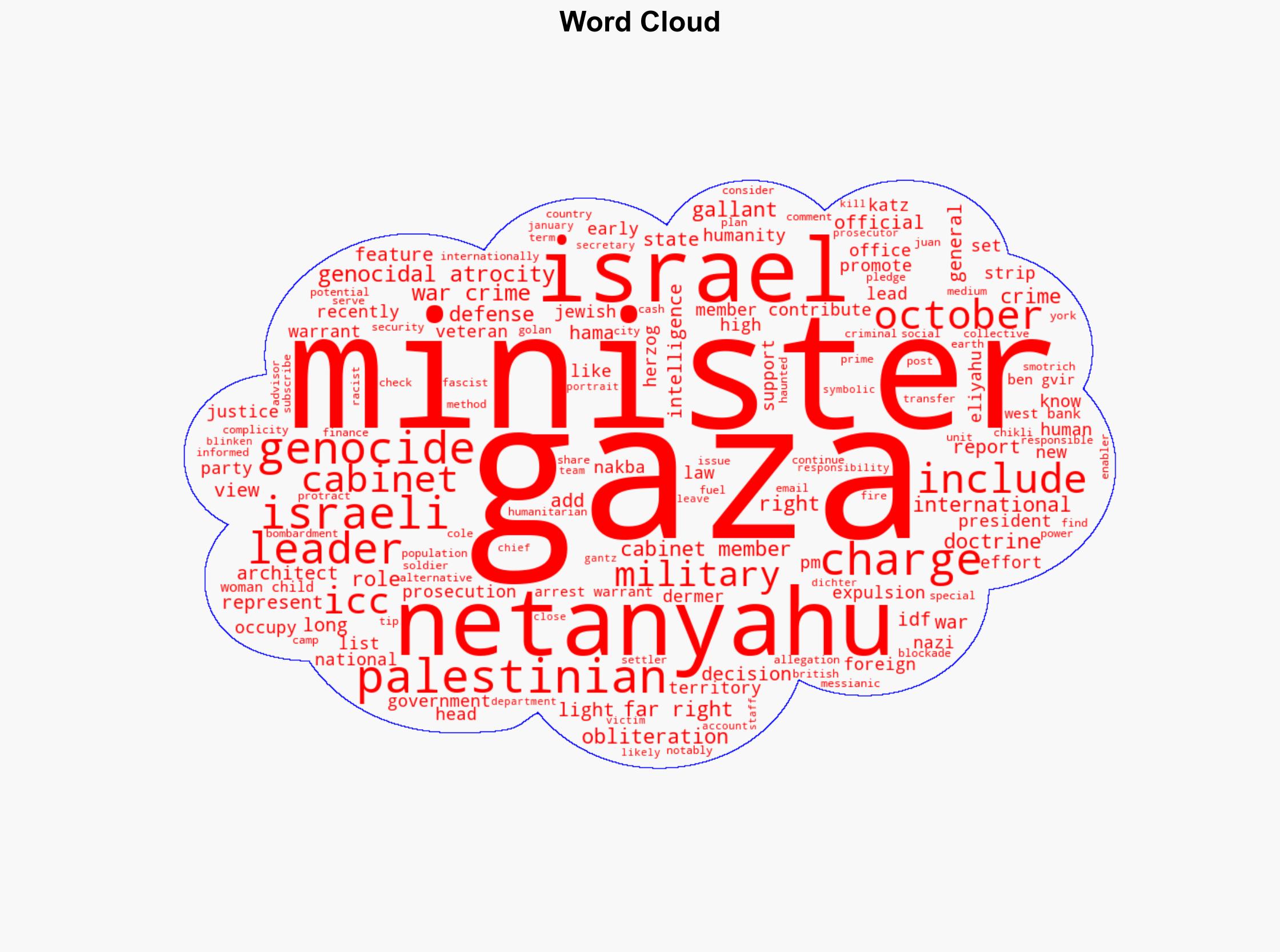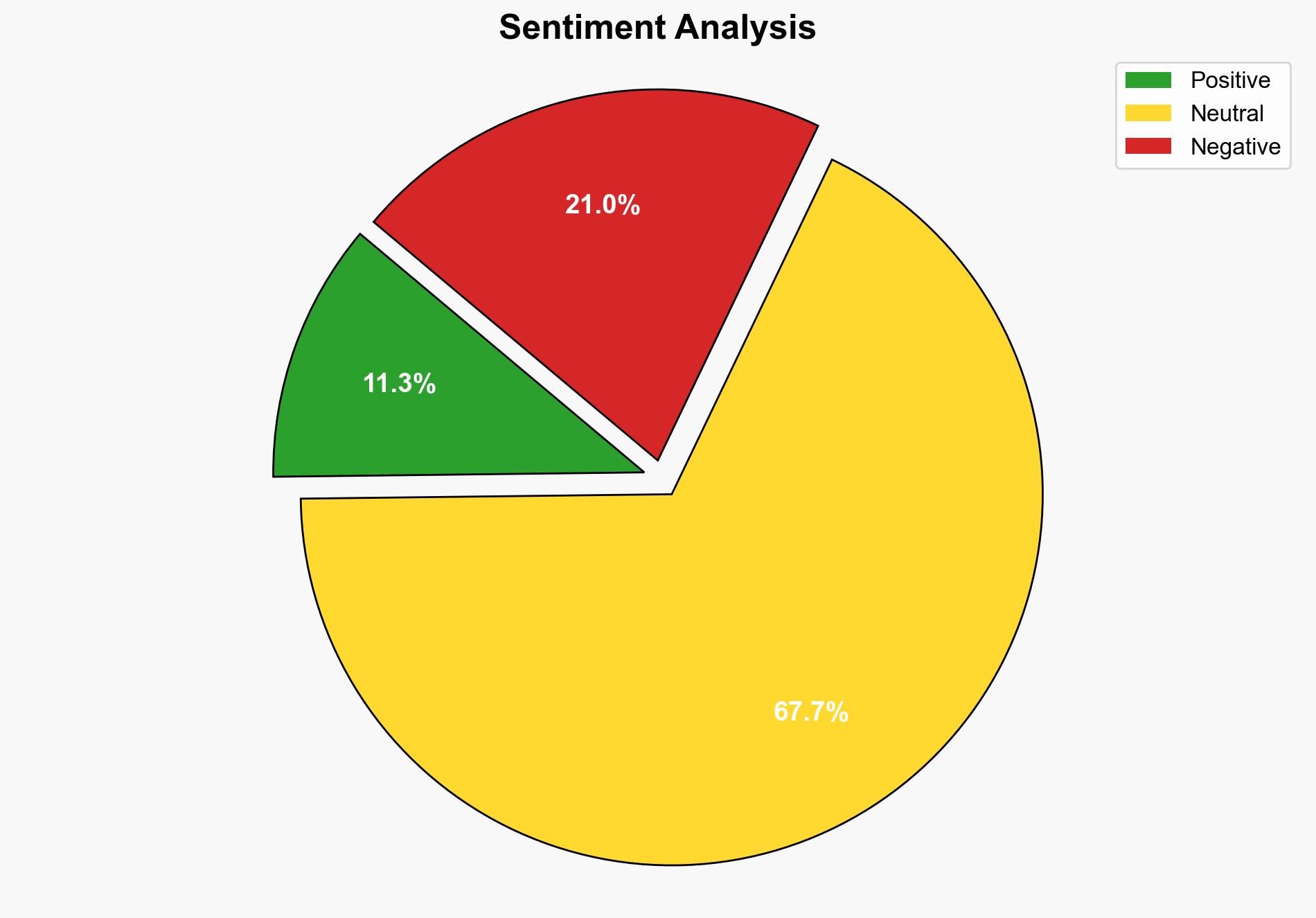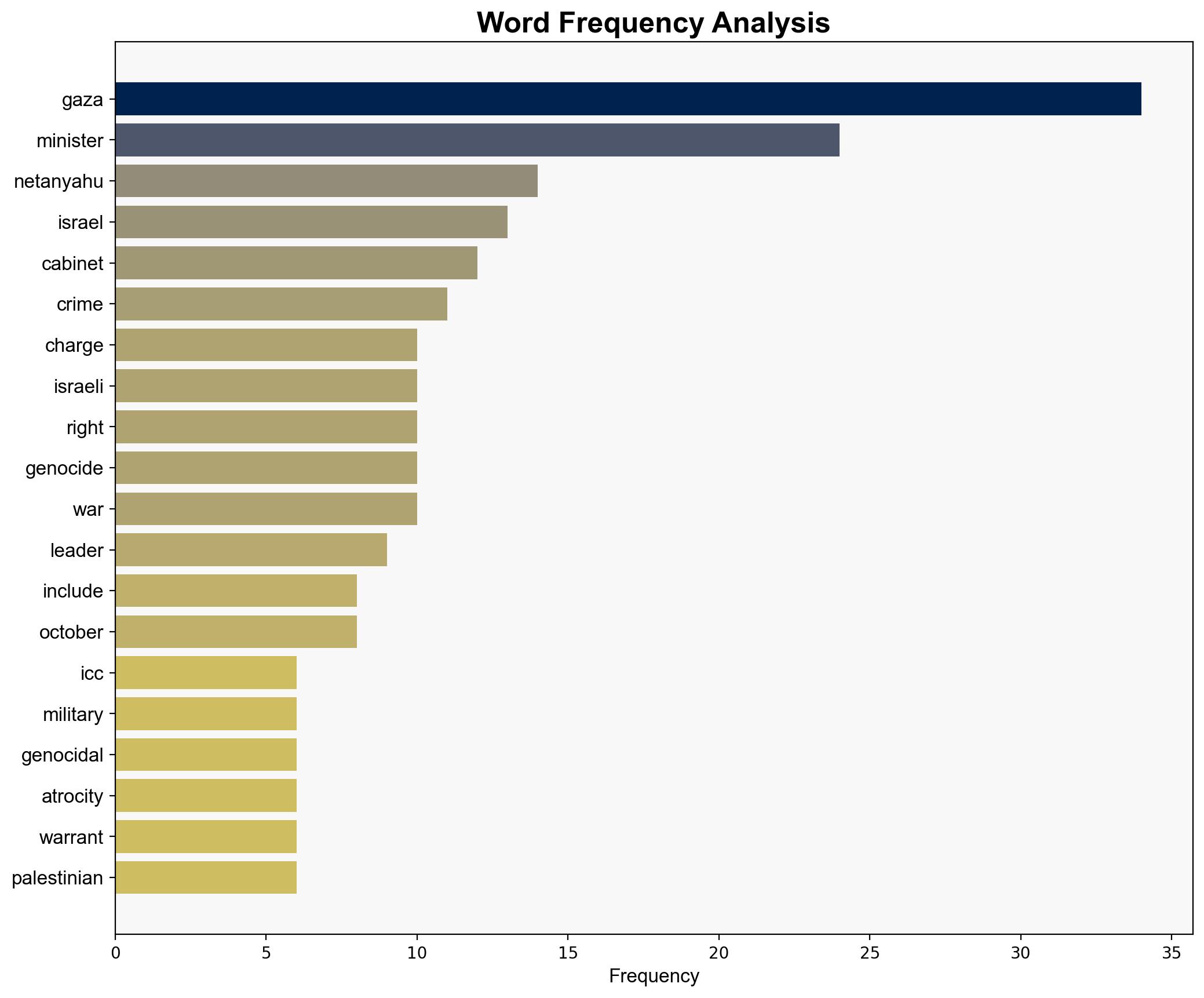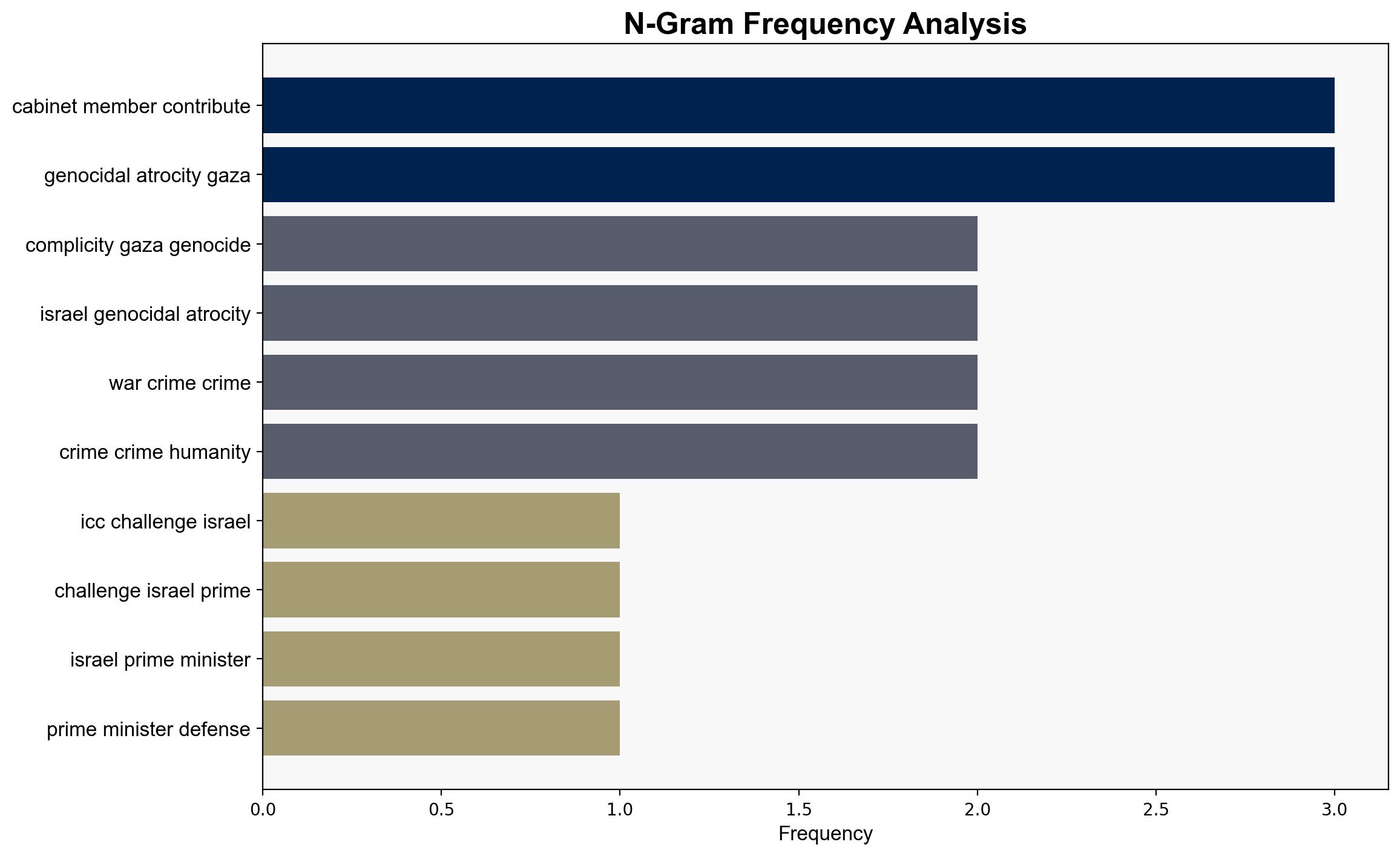The Netanyahu Cabinets Complicity in the Gaza Genocide – Juancole.com
Published on: 2025-11-07
Intelligence Report: The Netanyahu Cabinets Complicity in the Gaza Genocide – Juancole.com
1. BLUF (Bottom Line Up Front)
The analysis suggests a moderate confidence level that the Netanyahu cabinet’s actions in Gaza could be interpreted as complicity in war crimes, as alleged by international bodies. The most supported hypothesis is that the cabinet’s policies and military actions align with systematic human rights violations. Recommended action includes increased international diplomatic pressure and potential sanctions against individuals implicated in these actions.
2. Competing Hypotheses
1. **Hypothesis A**: The Netanyahu cabinet is complicit in systematic war crimes in Gaza, as evidenced by international reports and allegations of human rights violations.
– **Supporting Evidence**: International Criminal Court (ICC) allegations, reports of military actions violating human rights, and statements from cabinet members advocating severe measures against Gaza.
2. **Hypothesis B**: The actions of the Netanyahu cabinet are defensive measures against perceived threats from Gaza, not constituting war crimes.
– **Supporting Evidence**: Statements by Israeli officials framing actions as necessary security measures, historical context of conflict with Hamas, and the strategic military necessity claimed by Israel.
Using the Analysis of Competing Hypotheses (ACH) 2.0, Hypothesis A is better supported due to the volume and consistency of international reports and legal challenges against Israeli actions.
3. Key Assumptions and Red Flags
– **Assumptions**: Hypothesis A assumes that international bodies’ reports are accurate and unbiased. Hypothesis B assumes that all military actions are strictly defensive.
– **Red Flags**: Potential bias in international reporting, lack of transparency in military operations, and political motivations behind international legal actions.
– **Inconsistent Data**: Discrepancies in casualty reports and the portrayal of military actions by different sources.
4. Implications and Strategic Risks
– **Geopolitical Risks**: Heightened tensions between Israel and international bodies could lead to increased isolation and sanctions.
– **Escalation Scenarios**: Continued military actions could provoke broader regional conflicts or retaliatory attacks.
– **Economic Impact**: Potential sanctions could affect Israel’s economy and international trade relations.
– **Psychological Impact**: Prolonged conflict may exacerbate humanitarian crises and radicalize populations on both sides.
5. Recommendations and Outlook
- Engage in diplomatic efforts to mediate and de-escalate tensions in the region.
- Consider targeted sanctions against individuals implicated in human rights violations.
- Encourage transparency and independent investigations into alleged war crimes.
- **Scenario Projections**:
– **Best Case**: Successful diplomatic intervention leads to a ceasefire and peace talks.
– **Worst Case**: Escalation into a broader regional conflict with international involvement.
– **Most Likely**: Continued low-intensity conflict with periodic international condemnation.
6. Key Individuals and Entities
– Benjamin Netanyahu
– Yoav Gallant
– Itamar Ben Gvir
– Bezalel Smotrich
– Israel Katz
– Amihai Eliyahu
– Orit Strook
7. Thematic Tags
national security threats, human rights violations, regional conflict, international law, geopolitical tensions





